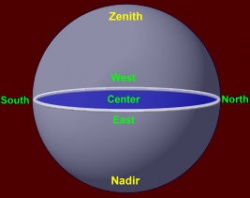Difference between revisions of "Five Sambhogakaya Buddhas"
(Created page with " Skt., pancabuddha Tib., sangs rgyas lnga: Five Purified and Awakened Ones; According to the Bardo Thödol, these five Dhyani Buddhas appear, one...") |
|||
| (3 intermediate revisions by the same user not shown) | |||
| Line 1: | Line 1: | ||
| + | [[File:Mandadir.jpg|thumb|250px|]] | ||
| Line 6: | Line 7: | ||
| + | Skt., [[pancabuddha]] Tib., [[sangs rgyas lnga]]: [[Five Purified and Awakened Ones]]; | ||
| + | According to the [[Bardo Thödol]], these [[five Dhyani Buddhas]] appear, one per day and in union with the [[corresponding]] [[Wisdom Dakinis]], during the first five days of the [[bardo]]: | ||
| − | + | <poem> | |
| − | + | [[Vairocana]] (Tib., [[Nampar Nangdza]]; [[rNam-par sNang-mDzad]]) center | |
| − | + | [[Akshobhya]] (Tib., [[Mikyopa]]; [[Mi-bsKyod-pa]]) [[east]] | |
| + | [[Ratnasambhava]] (Tib., [[Rinchenjungdan]]; [[Rin-chen-hByung-lDan]]) [[south]] | ||
| + | [[Amitabha]] (Tib., [[Opame]]; [[hOd-dpag-med]]) [[west]] | ||
| + | [[Amoghasiddhi]] (Tib., [[Donjodubpa]]; [[Don-yod-Grub-pa]]) [[north]] | ||
| + | </poem> | ||
| − | |||
| − | |||
| − | |||
| − | |||
| − | |||
In the drawing, the central blue plane represents the [[sambhogakaya]] [[realm]], indicating the five [[directions]] in which the above [[Buddhas]] [[manifest]] as [[visionary]] [[beings]] representing the all-encompassing [[Adibuddha]] (here [[symbolized]] by the three-dimensional [[sphere]]). | In the drawing, the central blue plane represents the [[sambhogakaya]] [[realm]], indicating the five [[directions]] in which the above [[Buddhas]] [[manifest]] as [[visionary]] [[beings]] representing the all-encompassing [[Adibuddha]] (here [[symbolized]] by the three-dimensional [[sphere]]). | ||
| Line 24: | Line 26: | ||
Note: | Note: | ||
| − | There are other collective [[Sanskrit]] names in use for these [[five deities]]: [[tathagathas]] and jinas. Also, there are other systems of [[organization]] - mostly with [[Vairocana]] changing positions (center/east) with [[Akshobhya]]. | + | There are other collective [[Sanskrit]] names in use for these [[five deities]]: [[tathagathas]] and [[jinas]]. Also, there are other systems of [[organization]] - mostly with [[Vairocana]] changing positions (center/east) with [[Akshobhya]]. |
| + | {{R}} | ||
| + | http://yoniversum.nl/dakini/bud5samb.html | ||
| + | [[Category:Dhyani Buddhas]] | ||
| + | [[Category:Sambhogakāya]] | ||
Latest revision as of 20:45, 14 January 2024
Skt., pancabuddha Tib., sangs rgyas lnga: Five Purified and Awakened Ones;
According to the Bardo Thödol, these five Dhyani Buddhas appear, one per day and in union with the corresponding Wisdom Dakinis, during the first five days of the bardo:
Vairocana (Tib., Nampar Nangdza; rNam-par sNang-mDzad) center
Akshobhya (Tib., Mikyopa; Mi-bsKyod-pa) east
Ratnasambhava (Tib., Rinchenjungdan; Rin-chen-hByung-lDan) south
Amitabha (Tib., Opame; hOd-dpag-med) west
Amoghasiddhi (Tib., Donjodubpa; Don-yod-Grub-pa) north
In the drawing, the central blue plane represents the sambhogakaya realm, indicating the five directions in which the above Buddhas manifest as visionary beings representing the all-encompassing Adibuddha (here symbolized by the three-dimensional sphere).
Each of these Buddhas represents one of the five families and each also has a so-called 'spiritual son' (or two): Bodhisattvas who represent the active energy of the respective Sambhogakaya Buddha by way of their (Nirmanakaya) manifestations and incarnations.
Note: There are other collective Sanskrit names in use for these five deities: tathagathas and jinas. Also, there are other systems of organization - mostly with Vairocana changing positions (center/east) with Akshobhya.
